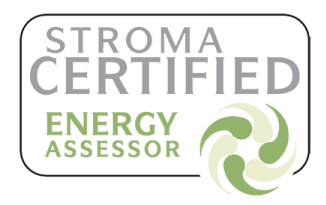6 Reasons Why Your EPC Rating is Different from Your Neighbour's?
At South London EPC, we often hear homeowners asking why their Energy Performance Certificate (EPC) differs from their neighbour’s, even if their properties seem identical. There are several factors that could explain these variations, and understanding them can help you make sense of your EPC rating.
1. Different Property Upgrades and Improvements
One of the main reasons your EPC may differ from your neighbour’s is due to variations in property upgrades. Even if the homes were built at the same time, individual improvements—such as adding insulation, upgrading windows, or installing a new heating system—can significantly affect the energy rating. If you’ve recently made enhancements to your home, you might see a higher score compared to a property that hasn’t had any updates.
2. Heating Systems and Controls
The type and age of heating systems can influence the EPC. If your neighbour’s property has a more efficient boiler or heating controls, this can result in a better EPC score. The assessor also considers whether you have thermostatic radiator valves, a programmable thermostat, or a modern condensing boiler. These small differences in heating controls can impact the overall rating.
3. Variations in Loft and Wall Insulation
Even slight differences in insulation quality or thickness can cause discrepancies in EPC ratings. If one property has added or thicker loft insulation, or a different type of wall insulation (e.g., cavity versus solid wall), it will likely perform better in the assessment.

4. Renewable Energy Installations
Renewable energy sources, like solar panels or heat pumps, contribute positively to an EPC. If you or your neighbour have invested in renewable energy, that property will receive a higher rating, as renewable energy can significantly reduce a home’s carbon footprint and energy consumption.
5. Building Materials and Extensions
Different building materials used in extensions or renovations can also lead to different EPC outcomes. For instance, an extension built with modern materials will often be more energy-efficient than an older section of the home. Even if you have similarly sized homes, newer additions or materials could make your EPC better or worse.
6. Assessment Dates and Methodology
EPC assessments follow specific methodologies which can change over time. If your EPC was assessed several years ago and your neighbour’s is more recent, the different methodologies could explain the discrepancy. Regular updates to EPC guidelines ensure more accurate ratings, reflecting modern standards for energy efficiency.
What Can You Do to Improve Your EPC?
If you’re looking to boost your EPC rating, start by addressing key areas such as improving insulation, upgrading your heating system, and investing in renewable energy. Small changes, like adding loft insulation or installing energy-efficient lighting, can make a significant difference.
At South London EPC, we’re committed to providing accurate assessments and helping homeowners understand their EPCs. If you’re curious about your rating or want advice on how to improve it, contact us today. Let’s work together to make your home more energy-efficient and cost-effective.
Ready to arrange your EPC, just click here and fill out your details


